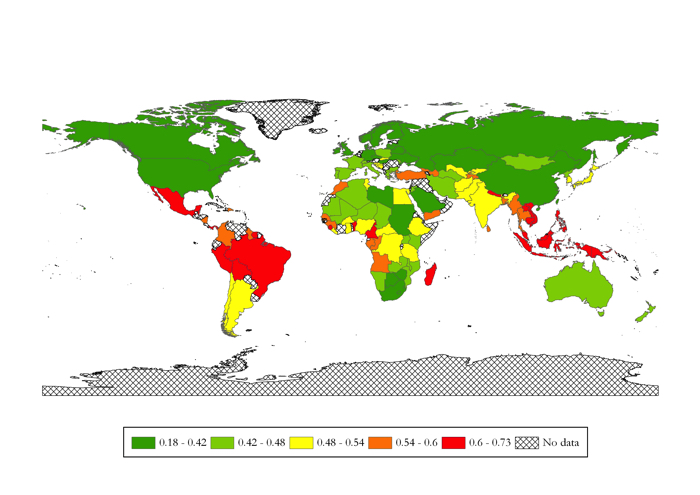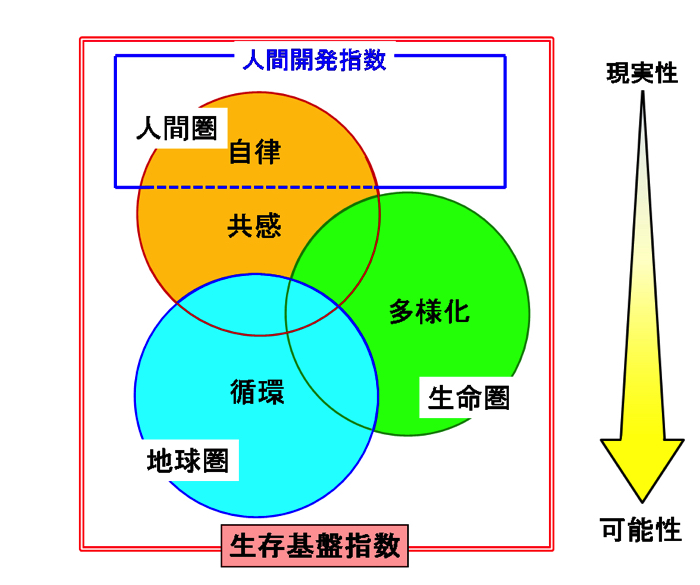- Project Leader : Sato Shiro (Osaka International University, Faculty of International Communication)
- Collaborators : Sato Takahiro (International Rice Research Institute, Crop and Environmental Science Division)
- : Nishi Makoto (Kyoto University, Center for Promotion of Interdisciplinary Education and Research)
- : Watnabe Kazuo (Research Institute for Humanity and Nature, Research Department)
- : Sugihara Kaoru (National Graduate Institute for Policy Studies, Graduate School of Policy Studies)
- : Mine Youichi (Doshisha University, Graduate School of Global Studies)
- : Kono Yasuyuki (Kyoto University, Center for Southeast Asian Studies)
Outline of Research
This research re-examines previous development indexes developed on a former G-COE program, and proposes a new development index named the ‘Humanosphere Potentiality Index’ (HPI). This is a research outcome of the former program “In Search of Humanosphere in Asia and Africa” (CSEAS, Kyoto University). Numerous criticisms have been made by scholars so far and this research attempts to analyse them, respond to them and re-construct the HPI.
Purpose
The aim of this research is to further develop the HPI. We attempt to re-examine each components of the HPI, and compare our HPI with other development indexes.
Significance
The HPI re-considers interdisciplinary sustainable society from the viewpoint of area studies. By doing so, we attempt to provide a new paradigm on development.
Expected Results
We expect to publish a book in English as well as an article in an international journal. In additon, we have a plan to write a short essay in the Focus Section of the Newsletter for International Institute for Asian Studies (IIAS), Leiden University after a presentation at the International Conference of Asian Scholars (ICAS).
 The world from the viewpoint of the Humanosphere Potentiality Index |
 The analytic scope of the Humanosphere Potentiality Index |
